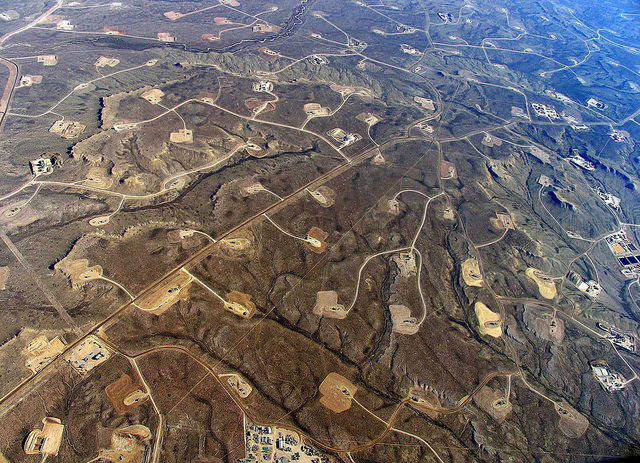Our new Policy Position Statements – Fracking
30th November 2015
As a freshwater charity, there are issues that we take a clear position on in order to inform our own policy and practice. To make our position on key issues transparent, we are beginning a new series of Policy Position statements that outline the issue, how it affects freshwater biodiversity, and what we’ll do about it. Our first two statements are on the very topical issues of Climate Change and Fracking.
Fracking and freshwater
The advent of shale fracking in the UK is currently a contentious issue, and our second Policy Position Statement outlines the evidence for its likely impacts on freshwater habitats. Overall we think that the environmental risks posed by fracking are considerable and fracking should not, therefore, be licensed in the UK. Here’s why:
(i) Climate change. Burning shale gas to provide energy adds carbon dioxide to the atmosphere at a time when methods for carbon capture and storage are not yet economically viable. Methane, an exceptionally powerful greenhouse gas can also be released through venting, and from poorly sealed and abandoned fracking wells. Global warming is a huge threat to the freshwater environment and exploitation of the world’s shale gas reserves would almost inevitably warm the earth by many degrees. At a time when the UK is ever closer to failing to meet our current our emissions targets, we need to focus on decarbonising our economy, rather than committing to long-term commercial fracking contracts that will lock the UK into carbon-based energy emissions for many decades to come.
 Fracking well pads in North America: high density fracking takes a lot of land and water
Fracking well pads in North America: high density fracking takes a lot of land and water
(ii) Land take and water use. The land area required for fracking is considerable: estimates for the Upper Bowland Basin in Lancashire suggest that extracting 15% of gas reserves would need over 30,000 wells on 5,500 pads. With each pad likely to occupy 2-3 hectares of land, the total land take would be c 16500 ha (60 square miles), plus additional access road infrastructure. With such large areas of land involved, there is a real risk that high quality freshwater habitats and their species will be lost. Fracking also uses large volumes of water – with suggested peak levels requiring around 0.1% of national usage. In water-scarce areas where fracking could be concentrated, like SE England, this is a major risk to aquifers that feed a wide range of streams, springs, lakes, ponds and wetlands.
(iii) Water pollution. The water pumped into fracking wells comes out with added contaminants: large volumes of waste water which is often very salty and can contain high levels of radioactive materials such as radon, heavy metals and other toxins from deep-buried rocks. Storage and disposal of this liquid can be a significant problem, especially if ill-prepared local Sewage Treatment Works are required to treat the effluent before it is released to local streams.
(iv) Environmental protection and mitigation measures. An important pro-fracking argument in the UK is that the industry would employ high levels of protection to minimise environmental damage from fracking. Specifically that: (a) the industry has learnt lessons from the many failures elsewhere in the world, (b) there would be considerable scrutiny and interest in new fracking sites ensuring that damage does not occur (c) EU and UK laws are more stringent than elsewhere in the world so protection standards are higher. However, based on our own experience of freshwater mitigation, we remain sceptical. For example, a recent report looking at a wide range of mitigation projects to protect Great Crested Newts from development impacts, showed that none of the schemes successfully maintained the original populations of this highly protected species, and in a quarter of sites Great Crested Newts were now extinct. That the mitigation failed so completely, even for this rather unfussy species, does not bode well for the safety of freshwater species or habitats threatened by developments like fracking.
Given the many risks and unknowns about fracking in the UK, it’s particularly worrying that the Government is considering allowing fracking on even our most important freshwater sites. We think that it’s essential this does not happen. Read our full fracking position statement. You can help too by responding to the current government consultation here.
